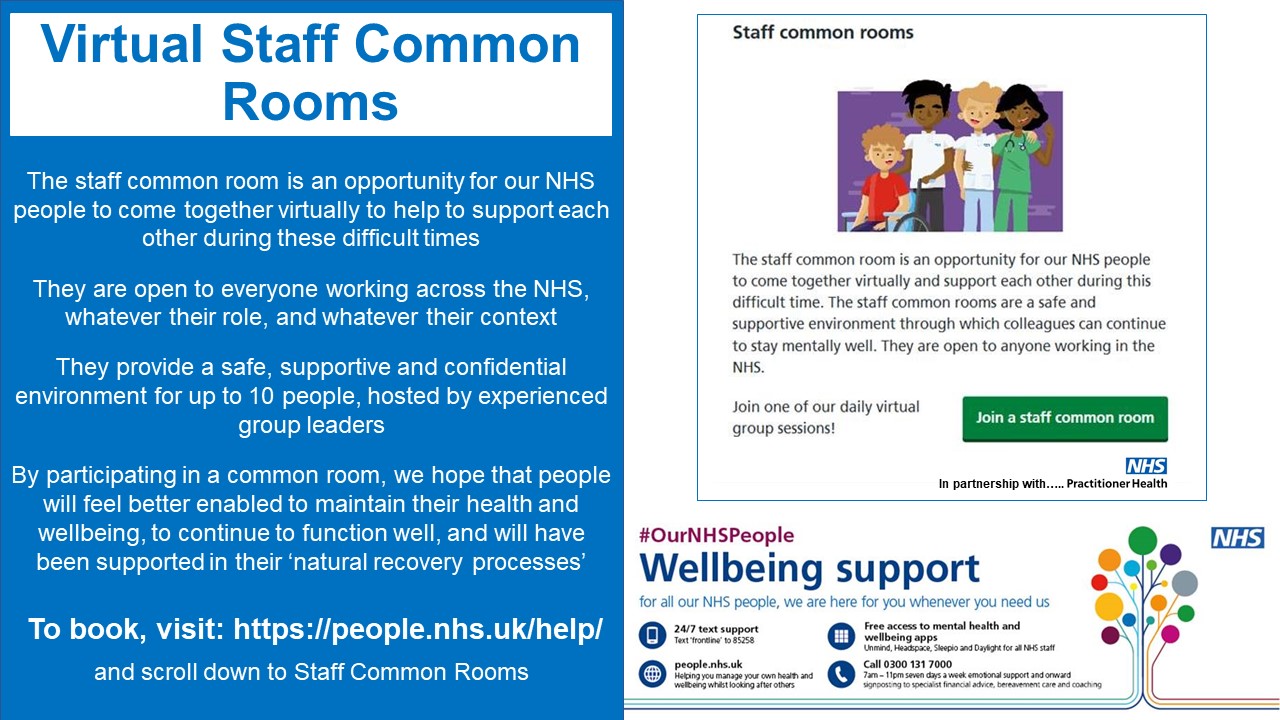Latest Advice
Updates in relation to COVID-19 (Coronavirus) are changing rapidly as the spread of the virus develops. Below you will find links to the latest advice.
The most up to date details from each country can be found here:
- England: https://www.england.nhs.uk/coronavirus/
- Scotland: https://www.nhsinform.scot/coronavirus
- Northern Ireland: https://www.publichealth.hscni.net/news/covid-19-coronavirus
- Wales: https://gov.wales/coronavirus
- Republic of Ireland: https://www.gov.ie/en/campaigns/c36c85-covid-19-coronavirus/
Advice on staying healthy
Social Distancing and Self- Isolating
The Royal College of Occupational Therapists have put together a ‘Top 10 Tips if You’re Social Distancing: https://www.rcot.co.uk/staying-well-when-social-distancing.
The British Dietetic Association have a whole section answering questions relating to diet and nutrition: https://www.bda.uk.com/resource/covid-19-corona-virus-advice-for-the-general-public.html.
Mental Wellbeing
It is important that you also focus on maintaining good mental health and wellbeing at this time, whether dealing with the challenges of work or having to self-isolate.
- There’s loads of information and resources on looking after your mental health on the NHS Every Mind Matters site, including advice if you need to stay at home and tips for dealing with anxiety around coronavirus.
- In Scotland, the National Wellbeing Hub provides advice and support for anyone working in health or social services in Scotland.
- The Intensive Care Society wellbeing resource library has information on understanding the impact of reduced psychological wellbeing at work and what you can do in response, including tips for dealing with extraordinary situations such as COVID-19 and everyday working in critical care.
- The World Health Organisation have also issued guidance on the Mental Health and Psychosocial Considerations During COVID-19 Outbreak
- Public Health England have developed an online Psychological First Aid course, providing training to help people with different needs cope with the emotional impact of COVID-19. Its aimed at frontline workers and is available to access for free here.
NHS staff have also been given free access to a number of well-being acts from now until the end of December:
- Access to Unmind, a workplace mental health platform is free to NHS workers during the COVID-19 outbreak. You just need to register here with an NHS email.
- Headspace, is a science-backed app in mindfulness and meditation, providing unique tools and resources to help reduce stress, build resilience, and aid better sleep.
- Sleepio and Daylight, are clinically-evidenced sleep improvement programmes that is fully automated and highly personalised, using cognitive behavioural techniques to help improve poor sleep.
NHS England have also set up Virtual Staff Common Rooms, for staff to come together virtually and support each other during these difficult times (details below – click to enlarge).
To book, visit: https://people.nhs.uk/help/
